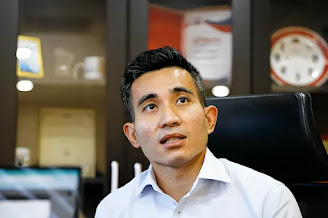If the resurgent United Malays National Organization (UMNO) has any hope of restoring its traditional position at the apex of national politics, the party must win over ethnic non-Malays and the urban constituencies where they reside. That’s according to UMNO information chief Shahril Hamdan, 36, who spoke exclusively to Asia Times in a wide-ranging interview.
His view would likely be disputed by party conservatives who advocate a narrower platform championing the rights and state-sanctioned economic privileges of ethnic Malays, the majority population in Malaysia. But electoral arithmetic, Shahril argues, demands that the country is run “in a way that is relatable not just to the conservative base but to broader Malaysia.”
“UMNO in the past had managed to get support from urban, non-Malay constituencies. For UMNO’s survival, that has to come back because political urbanization is a one-way street and all the maps indicate that if we ever want to go back to some form of majoritarian dominance, we need urban support and non-Malay support, at least a significant minority of it,” he said.
The trouble for UMNO is that few voters, particularly those within urban areas, are actively clamoring to return to a time when the UMNO-led Barisan Nasional (BN) coalition governed with a supermajority. But what the electorate would likely agree on is the need for renewed stability after three years of uncharacteristic political dysfunction.
Read the full story at Asia Times.
Nile Bowie is a journalist and correspondent with the Asia Times covering current affairs in Singapore and Malaysia. He can be reached at nilebowie@gmail.com.



